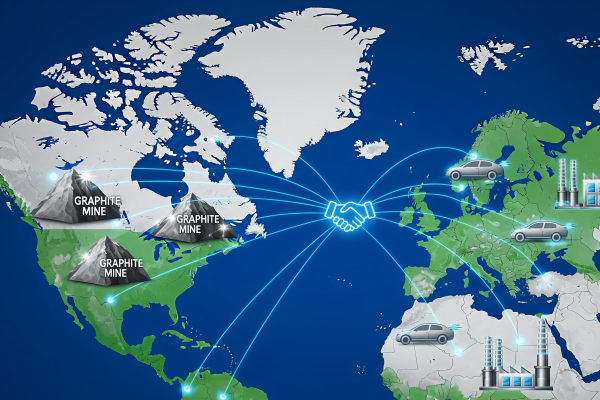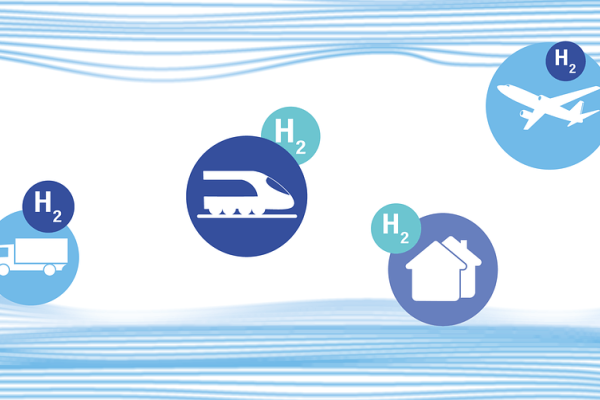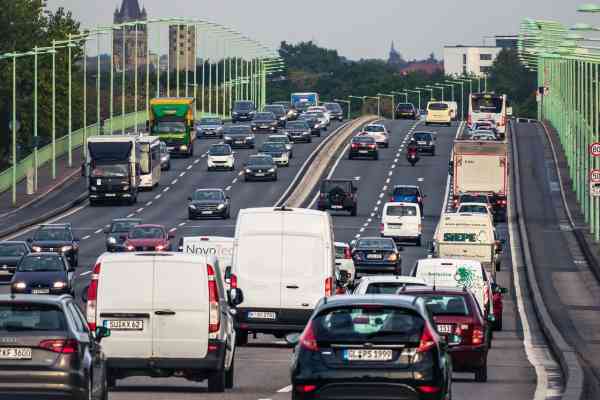December 27th, 2019 | 07:20 CET
BMW, Daimler or Volkswagen - who gives up first?
Ludwig Erhard, the second German Chancellor and economist, said in the 1950s the much-quoted sentence: "No state can give its citizens more than it has taken from them before". A conscientious government should therefore strive to keep the delta between tax revenue and benefit to the taxpayer as small as possible. In this context, government subsidies are always a sensitive issue. The economic sustainability of government support for technology and innovation must lead to industries and companies learning to stand on their own two feet and the market regulating demand. The solar industry in Germany is a prime example of how tax money can be wasted. No well-known German company in the solar industry has survived in competition with Asia. Is there any reason to worry that German electromobility will suffer a similar fate?
time to read: 3 minutes
|
Author:
Mario Hose
ISIN:
DE0005190003 , DE0007100000 , DE0007664039
Table of contents:

"[...] We can convert buses and trucks to be completely climate neutral. In doing so, we take a modular and incremental approach. That means we can work with all current vehicle types and respond to new technology and innovation [...]" Dirk Graszt, CEO, Clean Logistics SE
Author
Mario Hose
Born and raised in Hannover, Lower Saxony follows social and economic developments around the globe. As a passionate entrepreneur and columnist he explains and compares the most diverse business models as well as markets for interested stock traders.
Tag cloud
Shares cloud
Incentive without need
The German government supports buyers of an electric car with EUR 6,000.00 if the purchase price is less than EUR 40,000.00. A tempting offer, but no one seems to be interested. In view of the low demand for electric cars with batteries, a flop is now looming. By the year 2030, seven million electric cars are to be on German roads, according to the German government's target in Berlin. But the numbers speak a different language.
In Volkwagen's home state of Lower Saxony, about 5,600 electric cars were registered in 2019, corresponding to 1.6% of all new registrations. The number of newly registered charging stations is also stagnating at around 250, as in the previous year. In total, there are now 1,000 charging stations in Lower Saxony. A shortcoming in practice, customers do not always know how expensive the electricity at the charging station is.
China's turning away from battery cars
The People's Republic of China has already decided that from 2025 the CO2 balance of electric cars with battery storage will be fully taken into account, which means that hydrogen models have a clear advantage in comparison. Until the end of 2020, the subsidies for electric cars in China will also be abolished. While in Germany the federal government is increasing the subsidy for electric cars, China is already putting on the brakes.
In the past, it was common practice in the executive floors of BMW, Daimler and Volkswagen for the German core industry to set the tone worldwide with innovations and quality. In the context of global climate change, EU politicians hope that lower fuel consumption by vehicles will counteract global warming. Against the background that public interest in SUVs and vans has increased significantly in recent years, it remains questionable how manufacturers intend to increase their sales of electric cars.
It is also not impossible that BMW, Daimler and Volkswagen will again completely lose interest in battery cars. In any case, the large number of potential customers does not seem to exist in Germany so far despite incentives with taxpayers' money.
dynaCERT makes diesel green
A possible way out of the predicament for German car manufacturers is a hydrogen technology from dynaCERT. The company makes with its patented devices for retrofitting possible that existing vehicles with diesel engines do not have to be sold cheaply abroad and then replaced expensively. The device adds hydrogen to the combustion via the air supply, thereby increasing the efficiency of diesel engines of all kinds.
The consumption of diesel is significantly reduced by up to 18%. In addition, the emission of pollutants is reduced considerably. One of the largest European automotive logistics companies, MOSOLF, recently joined dynaCERT and has announced details of its future collaboration. The renaissance of the diesel is coming closer from an environmental point of view than the introduction of battery cars with no discernible advantage.
Saturn Oil & Gas produces in Canada
The oil market was able to make further gains at the end of the year and the price per barrel of WTI is already trading above the USD 60.00 mark again. The demand for crude oil will continue to rise, even if the current public perception in the rich industrial countries seems to be different. From the angle of environmental protection, oil producers from Canada with their high conditions for the protection of people and nature are particularly interesting.
Saturn Oil & Gas from Calgary is one of the most profitable companies in North America with a profitability of over 16% in the first nine months of this year. The company can report a significant growth rate of over 350% in sales compared to last year. The management took over the company about three years ago and has since then put it on the road to success. With the rising price of oil, profitability is also continuing to increase.
Conflict of interest
Pursuant to §85 of the German Securities Trading Act (WpHG), we point out that Apaton Finance GmbH as well as partners, authors or employees of Apaton Finance GmbH (hereinafter referred to as "Relevant Persons") may in the future hold shares or other financial instruments of the mentioned companies or will bet on rising or falling on rising or falling prices and therefore a conflict of interest may arise in the future. conflict of interest may arise in the future. The Relevant Persons reserve the shares or other financial instruments of the company at any time (hereinafter referred to as the company at any time (hereinafter referred to as a "Transaction"). "Transaction"). Transactions may under certain circumstances influence the respective price of the shares or other financial instruments of the of the Company.
Furthermore, Apaton Finance GmbH reserves the right to enter into future relationships with the company or with third parties in relation to reports on the company. with regard to reports on the company, which are published within the scope of the Apaton Finance GmbH as well as in the social media, on partner sites or in e-mails, on partner sites or in e-mails. The above references to existing conflicts of interest apply apply to all types and forms of publication used by Apaton Finance GmbH uses for publications on companies.
Risk notice
Apaton Finance GmbH offers editors, agencies and companies the opportunity to publish commentaries, interviews, summaries, news and etc. on news.financial. These contents serve information for readers and does not constitute a call to action or recommendations, neither explicitly nor implicitly. implicitly, they are to be understood as an assurance of possible price be understood. The contents do not replace individual professional investment advice and do not constitute an offer to sell the share(s) offer to sell the share(s) or other financial instrument(s) in question, nor is it an nor an invitation to buy or sell such.
The content is expressly not a financial analysis, but rather financial analysis, but rather journalistic or advertising texts. Readers or users who make investment decisions or carry out transactions on the basis decisions or transactions on the basis of the information provided here act completely at their own risk. There is no contractual relationship between between Apaton Finance GmbH and its readers or the users of its offers. users of its offers, as our information only refers to the company and not to the company, but not to the investment decision of the reader or user. or user.
The acquisition of financial instruments entails high risks that can lead to the total loss of the capital invested. The information published by Apaton Finance GmbH and its authors are based on careful research on careful research, nevertheless no liability for financial losses financial losses or a content guarantee for topicality, correctness, adequacy and completeness of the contents offered here. contents offered here. Please also note our Terms of use.




